How They Broke Britain
£9.99
THE REVEALING, DEFINING ACCOUNT OF THE DARK NETWORK THAT BROKE OUR COUNTRY.
‘An exceptional broadcaster’ – Guardian | ‘Consistently, forensically, brilliant’ – Emily Maitlis
Something has gone really wrong in Britain.
Our economy has tanked, our freedoms are shrinking, and social divisions are growing. Our politicians seem most interested in their own careers, and much of the media only make things worse. We are living in a country almost unrecognisable from the one that existed a decade ago. But whose fault is it really? Who broke Britain and how did they do it?
Bold and incisive as ever, James O’Brien reveals the shady network of influence that has created a broken Britain of strikes, shortages and scandals. He maps the web connecting dark think tanks to Downing Street, the journalists involved in selling it to the public and the media bosses pushing their own agendas. Over ten chapters, each focusing on a particular person complicit in the downfall, James O’Brien reveals how a select few have conspired – sometimes by incompetence, sometimes by design – to bring Britain to its knees.
Read more
Additional information
| Publisher | Virgin Digital (2 Nov. 2023) |
|---|---|
| Language | English |
| File size | 8396 KB |
| Text-to-Speech | Enabled |
| Screen Reader | Supported |
| Enhanced typesetting | Enabled |
| X-Ray | Enabled |
| Word Wise | Enabled |
| Sticky notes | On Kindle Scribe |
| Print length | 369 pages |
| Page numbers source ISBN | 0753560348 |

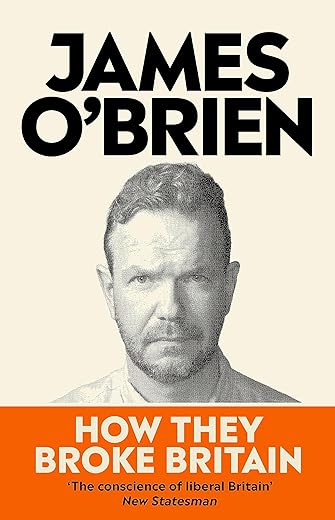
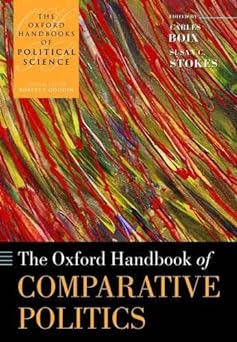
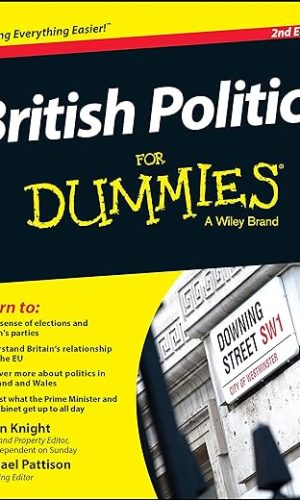
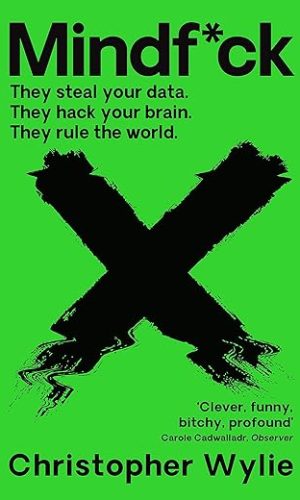

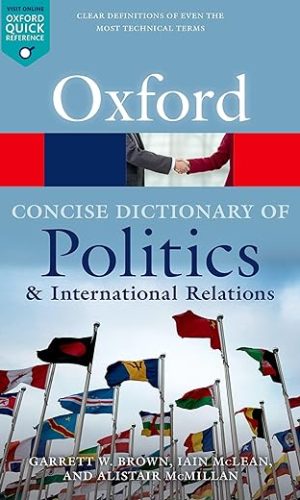
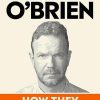
by Andi Stam
James O’Brien’s ‘How They Broke Britain’ is a masterful and incisive dissection of the key figures and events that have shaped modern British politics. With his trademark wit and sharp insight, O’Brien offers a compelling narrative that is both engaging and thought-provoking. His detailed examination of personalities like Boris Johnson, Rupert Murdoch, and Nigel Farage is both entertaining and enlightening. The book’s vivid prose and keen observations make it a standout read. For anyone interested in understanding the complexities of British politics, this book is an essential and highly recommended addition to their library.
by Mac McAleer
This is a book about ten characters and “How they broke Britain”, written by the well-known LBC presenter and journalist James O’Brien. Although each chapter is named after one of the characters who helped to “break Britain”, these are not biographies, but journalistic accounts of these characters and their malign influence and actions.
I assume that the journalistic approach includes thorough fact-checking, so the accounts in each chapter can be believed (1). Many of the characters are well known. Rupert Murdoch is a media mogul, Paul Dacre was the editor of the Daily Mail, Andrew Neil works in the media and Jeremy Corbyn (2) was Leader of the Labour Party. David Cameron, Boris Johnson and Liz Truss were all Prime Ministers. Dominic Cummings was a director of Vote Leave and later worked for Boris Johnson. Matthew Elliott may not be so familiar. He was the chief executive of Vote Leave. Many others could have been included, but presumably fell foul of lack of space in the book, anonymity and the libel lawyers.
THE BOOK begins with a substantial Introduction of 45 pages, followed by 10 chapters, totalling 347 pages of text. This is followed by 10 pages of Notes, which are all short references to media sources (2). There are no illustrations and no Index.
___________________________________________________________________
(1) Fact-checking may not be assumed for Rupert Murdoch’s Fox News. The facts will be ignored if it is better for the ratings to run false stories. For the British newspapers, the facts do not always need to be checked because they have been obtained by phone hacking, for which the results are always true.
(2) Parts of the chapter on Jeremy Corbyn come from the author’s review in the Times Literary Supplement of
Protest and Power: The Battle for the Labour Party
by David Kogan.
(3) CONTENTS
Epigraph
‘As long as the general population is passive, apathetic, diverted to consumerism or hatred of the vulnerable, then the powerful can do as they please, and those who survive will be left to contemplate the outcome’ Noam Chomsky (“Who Owns the World”)
Introduction (45 pages)
Chapter 1 Rupert Murdoch (34 pages)
Asked why he allowed a major advertiser on Fox News to make outlandish claims of election fraud lies Rupert Murdoch explained that it was a financial and not a political decision and said that “it is not red or blue, it is green” (page 56) that is, not Republican nor Democrat but green for money. Rupert Murdoch was born into the newspaper business and has been quoted as saying that ‘The press should be anti-establishment, should keep its distance from authority . . . from big business and all vested interests. It’s only natural that it should questioning and sceptical.’ (pages 61/62). What happened? Fox News happened. Fox News became and remains the most profitable news channel in the world. It showed that millions could be made from right-wing media. See also
Murdoch’s Politics
by David McKnight.
Chapter 2 Paul Dacre (32 pages)
Paul Dacre was editor of the Daily Mail for 26 years and is now chairman of the holding company. A contributor to the unauthorised history of the Daily Mail,
Mail Men
by Adrian Addison, was quoted as saying that “I felt Dacre just saw life – the world – as an awful, threatening place where he wanted to be in his bunker. Firing salvos out, you know – blowing up his enemies. That bunker mentality.” (Chapter 2, page 83) This chapter mainly concerns examples of Daily Mail journalism, with Paul Dacre firing salvos from his bunker towards anti-Brexiteers, international institutions, the Blob, the Woke and the judges. “In February 2017, the unpaid and anonymous editors of Wikipedia voted overwhelmingly to ban the Daily Mail as a trusted source for the website, describing it as ‘generally unreliable’ and calling for ‘its use as a reference is to be generally prohibited, especially when other more reliable sources exist’.” (Chapter 2, page 89)
Chapter 3 Andrew Neil (32 pages)
“Andrew Neil may not seem an obvious person for inclusion in this book, but both his career and his impact are a perfect illustration of what has happened to this country.” (Chapter 3, page 113)
Chapter 4 Matthew Elliott (36 pages)
Matthew Elliott may not be familiar to readers. He was the chief executive of Vote Leave and the start of this chapter discusses his problems with the Electoral Commission over electoral expenses. It continues with his co-founding of the “Tax Payers Alliance” (TPA) in 2004 and the Conservative Friends of Russia (CFoR) in 20212 and the Eurosceptic “Business for Britain” in 2013. Think tanks have their origins in genuine research groups. For example, in the 1950s Anthony Fisher was so impressed by Friederich Hayek’s book
The Road to Serfdom
that he set up the Institute of Economic Affairs. Nowadays, think tanks are really lobby groups, often supported by anonymous donors, promoting extreme free-market or libertarian views intended to favour the business interest and the wealthy or both. They have morphed into organisations “dedicated to promoting greed, protecting greed and serving the interests of the greedy.” (page 151)
Chapter 5 Nigel Farage (37 pages)
The image of Nigel Farage is of a public school educated, pantomime “toff” that people generally like. However, this chapter begins not with Nigel Farage, but with Nick Griffin of the far-right/fascist British National Party (BNP) and his appearance on the BBC’s Question Time (QT) in October 2009. He had been elected to the European Parliament a few months before. Using this QT appearance as a link, the chapter then says Nigel Farage was one of the most frequent quests on QT of all time. particularly as the chapter continues to say that Nigel Farage is a liar and a racist. The chapter then reproduces an edited version of an interview at LBC between Nigel Farage and the author, James O’Brien. The author comments “It was, to say the least, an illuminating experience, although ultimately, a futile one. In the context I’ve outlined here, where Farage is essentially Nick Griffin in a more palatable guise – an inveterate liar, a facilitator of far-right politics and overtly, albeit smilingly, racist – some moments stand out more than others.” (page 203)
Chapter 6 David Cameron (29 pages)
David Cameron, educated at Eton and Oxford, came from a privileged background where he was part of the social hierarchy. He became Prime Minister at just 43 years old with no serious frontline political experience. At the time his future was considered very promising. For party political reasons he initiated the Brexit Referendum, lost the referendum, and then resigned.
Chapter 7 Jeremy Corbyn (28 pages)
Jeremy Corbyn was an accidental leader of the Labour Party. Changes made to the party’s voting rules and the feeling amongst some Labour MPs that a representative from the left should be on the ballot ‘for balance’ were the cause. Whatever the problem, Jeremy Corbyn turned out not to be the solution as he avoided interviews, waved through Brexit and handed Boris Johnson an historic majority.
See also
Protest and Power: The Battle for the Labour Party
by David Kogan and
All Out War
by Tim Shipman.
Chapter 8 Dominic Cummings (30 pages)
The contribution of Dominic Cummings to the breaking of Britain is immense. He delivered the Brexit referendum result and steered Boris Johnson to an 80-seat majority. Strangely, he considers that he is working in the best interests of the country. Others consider him deluded and a little crazy. He reciprocates by holding most others in contempt. He seems to consider that the end justifies the means. However, he is not interested in personal enrichment, advancement or status, and this provides him with both detachment and independence.
Chapter 9 Boris Johnson (33 pages)
Boris Johnson is immune to the truth, but he is entertaining and is often very funny, like all good snake oil salesmen. This chapter documents a selection of his scandals.
See also
The Assault on Truth
by Peter Oborne, 2021.
Chapter 10 Liz Truss (9 pages)
Liz Truss was deeply embedded in the secretly funded think-tank universe. She also understood that it was more effective to tell voters only what they wanted to hear. Her elevation to Prime Minister turned Britain into a think-tank laboratory. The first and only experiment was introduced by Kwasi Kwarteng’s mini budget. This was praised by the right-wing media/Tory party/think-tank nexus, but it badly spooked the financial markets. Liz Truss resigned after forty-five days in office. The mini budget inflicted an estimated £30 billion worth of damage on the UK economy (Observer, 12-Nov-2022).
Acknowledgements
Notes (20 pages)
by Andi Stam
The book is quite badly damaged on one corner. I’ll keep it but I’m glad it wasn’t bought as a gift.
by Mr. Sean C. Alexander
James O’Brien’s latest book – following tomes on how to be right and not be wrong – is arguably his most polemical yet. Chapter by chapter, he dissects the roles that media moguls, politicians and newspaper editors have played in generating a generation’s worth of failure, incompetence and downright illegality as this country has lurched from crisis to crisis, with seemingly no sign it will ever stop. Research here is key, and O’Brien’s scalpel precision in both recording and retelling so many of the key stages between Rupert Murdoch’s rise as a press baron to the laughably brief tenure of Liz Truss as Prime Minister. In between is made up of a frankly unbelivable-unless-it-was-true catalogue of cronyism, ill-preparedness, political gain at the expense of public wellbeing and criminal negligence. While I don’t personally keep with every facet of each individual given their chapterial shame sheet, theres never the less ample fuel to stoke my personal ire. Standouts are inevitably the eviscerations of Nigel Farage, David Cameron, Dominic Cummings and Boris Johnson – key architects and beneficiaries of the Brexit referendum in 2016 which provides this book with its raison d’etre. O’Brien’s skilful ability to plot piece by piece how a campaign of fear-mongering, racism, divergance and sheer bloody lies enabled these crooks and swindlers to point the blame at anyone other than themselves and somehow rise their own greasy poles in the meantime. It’s telling that even the data obsessed and clearly non-parliamentarian Dominic Cummings is damned by O’Brien with faint praise for often being the smartest guy in a room filled with incompetence and promotion above and beyond any actual achievement. Privilege, entitlement and a willingness for self-service above the public need are the recurrent themes that emerge, and O’Brien’s book is as important a testament to How they broke Britain as the Nuremberg trials were in accounting the events of World War II. Essential reading for anyone who still thinks it’s all the fault of immigrants, the badly off, the disabled and the most needy of society, who have all been betrayed by the actions of nine white men and one white woman.